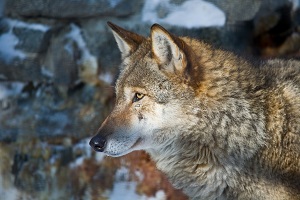Please activate JavaScript in your browser to use all interface options.
- About rosneft
- Corporate governance
-
Business
Upstream
- General Information
- Licensing
- Geological Exploration
- Reserves and resources
- Production and Development
- Gas Business
- Offshore projects
- Offshore equipment
Downstream
- General information
- Petroleum refining
- Gas Processing
- Petrochemistry
- Catalyst plants
- Production of lubricants
- Sales of oil products
- Sales of Petrochemical products and LPG
- Gas Sales
- Gas Motor Fuel Sales
-
For Investors and Shareholders
- Corporate documents
- Financial statements, presentations, annual reports
- LSE RNS disclosure
- Investor calendar
- Rosneft: Contributing to Implementation of UN Sustainable Development Goals
- ESG
- Equity
- For Insiders
- Shareholder’s Personal Account
- General shareholders' meeting
- Dividends
- Questions and answers for shareholders
- Investor tools
- Contacts
- Beware of fraud!
- Sustainable Development
- News room
Rosneft Supports Wolf Population Studies in Evenkia
22 February 2024
Scientists of the Siberian Federal University with the support of Vostsibneftegaz (an enterprise of Rosneft’s oil and gas production block) analysed the state of the wolf population in the Evenki district of Krasnoyarsk Territory.
The result of the research was a set of recommendations of specialists on improving the regulation of predator numbers to maintain the balance of ecosystems.
In total, the researchers conducted 67 field trips to various districts and reserves in Yenisei-basin Siberia, with 538 observers participating. As a result of this work, scientists recorded 887 territories occupied by the wolf permanently, of which 291 turned out to be located in Evenkia.
In addition, scientific experts developed a unique method of calculating the number of predators, according to which the wolf population on the territory of Evenkia counts 2,600 individuals. In the course of the research, the scientists also studied the habitat, the predator’s food base, and obtained data on the average fecundity and sex and age profile of the wolf.
Specialists prepared a map of predator habitat areas, analysed population self-regulation mechanisms, and assessed the impact of the predator on deer and elk populations. It turned out that predators inhabit the habitats and migration routes of these animals most densely, and in case of insufficient food supply wolves switch to feeding on domestic reindeer.
Research results will contribute to the development of current practices and targeted impacts on predator population structure and reduction of damage to indigenous households in the region.
Reference:
The East Siberian Oil and Gas Company (Vostsibneftegaz), a subsidiary of Rosneft Oil Company, develops the Yurubcheno-Tokhomskoye oil and condensate field in the Evenki district of the Krasnoyarsk Territory.
Vostsibneftegaz has supported around 29 scientific projects during the nine years of grant support. These include projects to study the population of wild reindeer, a bioindicator species of the Arctic zone, musk deer, red deer, Siberian sable, and the rare Taiga Bean Goose.
Rosneft
Information and Advertising Department
February 22, 2024
Keywords: Environmental news 2024

-315xx70.png)

